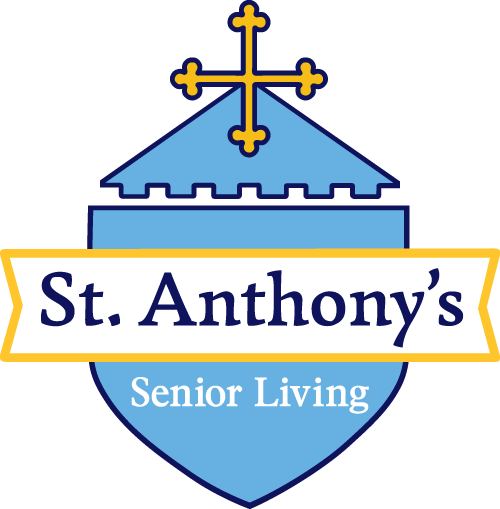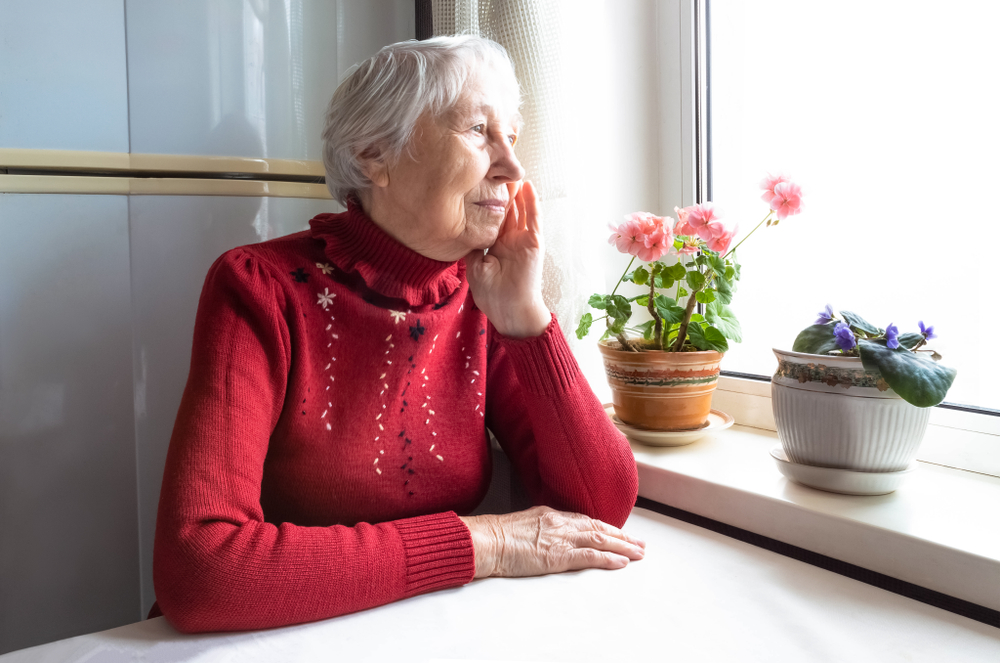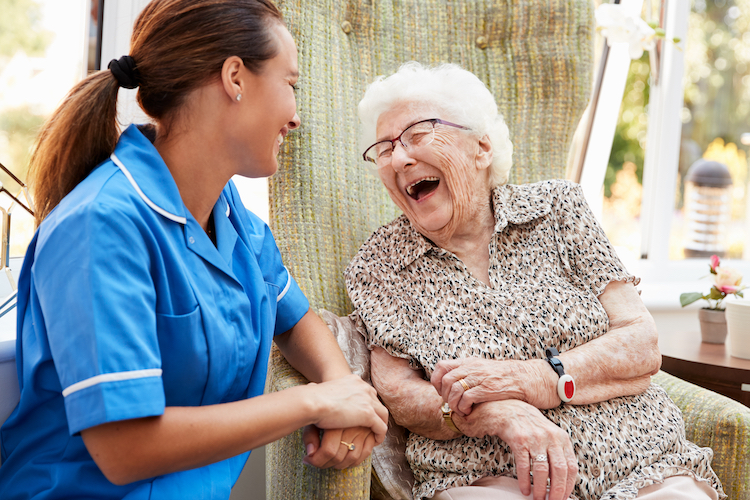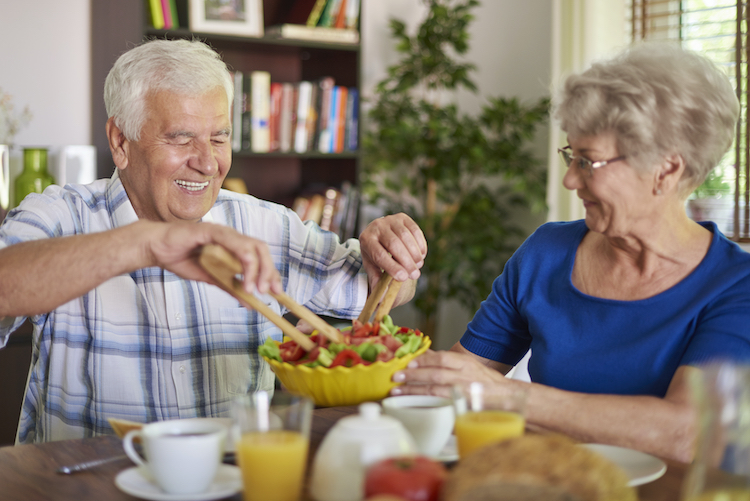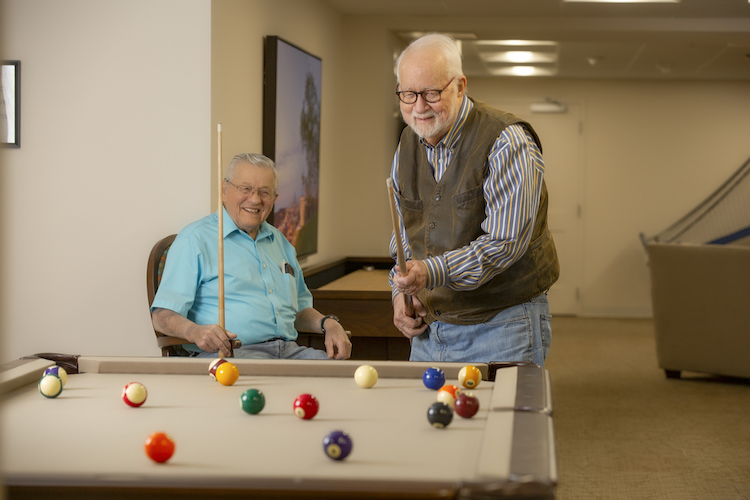October is Depression Awareness Month, making this a crucial time to talk about mental health for seniors. As we head into the colder months, it’s easy for people of all ages to become isolated and lonely. In fact, it’s estimated that 5% of adults in the United States experience Seasonal Affective Disorder (SAD) during the late fall and winter months, and those who don’t may still struggle with feeling down or having the “winter blues.”
Senior living residents may be even more likely to experience depression than younger adults, as they don’t have a lifestyle that requires them to stay busy and on the go. The CDC estimates as many as 20% of adults ages 55 and older experience some type of mental health condition.
Recognizing the Symptoms of Depression
The first step to treating depression is awareness. It’s essential to recognize the symptoms of depression in yourself or others so you can seek help and take steps to care for your mental well-being.
Feeling ashamed that you’re not feeling great? Don’t be! Mental health is just as important as physical health, and struggling with depression doesn’t carry the stigma that it once may have. Depression symptoms may range significantly from mild to severe. According to the American Psychiatric Association, individuals struggling with depression may experience one or more of the following symptoms:
- Intense feelings of sadness
- Loss of interest in activities you used to enjoy
- Appetite changes (overeating or not eating enough)
- Lost or gained weight (not related to dieting)
- Difficulty sleeping or sleeping too much
- Increased fatigue or lack of energy
- Noticeable increase in fidgeting or pacing
- Slowed movements or speech
- Feelings of guilt or worthlessness
- Difficulty thinking clearly or making decisions
- Thoughts of death or suicide
If you are experiencing any of these symptoms, you should speak with a doctor right away about treatment options and support.
Mental Health Tips for Seniors
If you are an older adult in senior living or considering transitioning to a senior living lifestyle, we have some advice to help you take care of your mental health this winter. If you have a loved one in senior living, keep reading for ideas on how to support them better.
1. Talk to Your Doctor
Even if you’re feeling happy and energetic, being open and honest with your doctor about your mental health is important. This will empower them to help you better if you ever do struggle with a mental health concern, and it will help you to feel more okay talking to them about it as well. Depression can be connected to other ailments, as well as a side effect from some medications. So if your doctor knows how you’re feeling, they might be able to make an adjustment to help.
If you are struggling with depression or another mental illness and don’t feel comfortable bringing it up to your doctor, ask a family member or close friend to come with you and help you share what’s going on. Any of our medical or care staff at St. Anthony’s would be more than happy to support you on your mental health journey!
2. Stay Physically Active
Physical fitness is vital for older adults! It can help reduce the risk of all kinds of physical illnesses like heart disease or arthritis, and it can help reduce the risk of many mental illnesses. A recent study from Harvard Health notes that exercise can work just as well as taking anti-depressant medication in some cases.
Because we know how important exercise is as we age, St. Anthony’s equips our residents with a wellness center and fitness classes designed to be approachable at varying levels of health and mobility.
3. Be Social
Finding a community to give you purpose and support is so important for your mental health for seniors! That’s one of the beautiful things about senior living communities — you have a built-in social life, plus a calendar packed with activities to participate in with your friends.
Being social doesn’t always sound appealing when you’re feeling down or depressed, but having close friends who understand you and can sit with you in the hard seasons will make it feel much less heavy.
4. Eat a Balanced Diet
What you eat has a big impact on your holistic health. Eating a balanced, nutritious diet will fuel your body and mind with the energy they need daily. St. Elizabeth’s Bistro at St. Anthony’s has five-star meals that are all dietician-approved to ensure you get all the nutrients you need, and the menu can be adjusted to suit any dietary needs.
5. Get Spiritually Connected
Your spiritual health is just as important as your physical and mental health, and it influences both! Having a strong faith gives you a sense of purpose and meaning, inspiring and encouraging you on difficult days.
As a faith-based senior living community, we recognize the value of connecting with God and others. Our residents love continuing to practice their faith by attending Mass, praying the Rosary among fellow believers, and weekly bible studies. As for our residents who don’t share the Catholic faith, we still welcome them with open arms and encourage them to seek spiritual meaning in their lives!
Looking for a Loving Senior Living Community?
The most powerful tool we have to work through seasons of depression is community. When we feel loved, supported, and seen, we feel valued and purposeful. That is the heart behind everything we do at St. Anthony’s!
We want our residents to feel right at home, seeing our community as a safe space where they can express themselves and know they are loved like family. If you or a loved one are preparing to transition to senior living and considering your options, we’d love to welcome you to our campus for a tour! Contact us to learn more.
